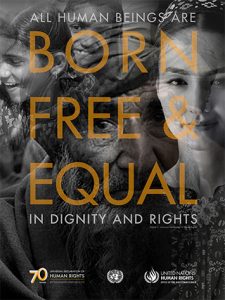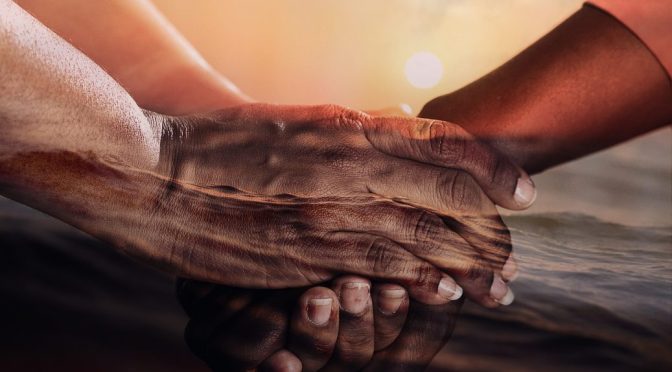70 years of International Human Rights
Inalienable, intersectional, international human rights. Do we ALL have them yet? The Universal Declaration of Human Rights was adopted by the United Nations on 10 December 1948. This year, Human Rights Day begins a year-long campaign to mark its 70th anniversary.
 We’ve come a long way, but we’ve a way to go yet as injustices on individual, group, and national, scales persist.
We’ve come a long way, but we’ve a way to go yet as injustices on individual, group, and national, scales persist.
“Many leading nations treat it as a pick-n-mix document, usually ignoring the principles against torture or discrimination on grounds of sex or sexuality.” IHRD 2015
Inequality
70 years – three score and ten (Psalm 90:10), was the life expectancy of some in 1948, six years fewer if you were black. As we approach 2018 many don’t reach 70 in areas stricken by poverty, famine, war, terror, femicide, homicide, mental and physical health issues, and countless other societal obstacles to living out free, equal, healthy lives.
Categorisation, Class & Checkbox
Instead of celebrating equality and diversity we are still categorising and stereotyping each other by those age-old categories of sex, class, colour, race, religion, sexuality and more. Despite the proclamation of the UDHR:
“…inalienable rights which everyone is inherently entitled to as a human being — regardless of race, colour, religion, sex, language, political or other opinion, national or social origin, property, birth or other status.” – United Nations
Our focus, to this day, remains bitterly embroiled in judging and discriminating based upon whether a person is male or female (not to mention intersex or trans), white or black, rich or poor, Rohingya or Buddhist (yes there’s such as thing as “ultra-nationalist Buddhists”), Jew or Muslim, Catholic or Protestant, Tory or Labour, gay or straight, Celtic or Rangers, City or United…and so on.
Instead of seeing the human being before us with their unique experiences, journey, and personality, we immediately box people up and reduce them to a category, a caste, a label, a limiter.
Intersectional Rights
Whilst JFK said that “the rights of every man are diminished when the rights of one are threatened”, Audre Lorde, echoed with something similar:
“I am not free while any woman is unfree, even when her shackles are very different from my own.” – Audre Lorde
No two men or women live identical lives, again Audre Lorde: “There is no such thing as a single-issue struggle because we do not live single-issue lives.”
They are called Human Rights because they are based upon our common humanity, not because of our sex, class, race etc but irrespective of them. Respect is due our humanity – that which unites us, not that which divides us.
Any movement that claims to be a movement of justice and liberation and yet commits oppression of, for example, Rohingya, Palestinians, Yazidi, Kurds, young women and girls, trans and many other minority or disadvantaged groups needs to think about its actions and motivations.
In 2012, Aamna Mohdin of Queen Mary’s College London, Feminist Society described “Transphobia [as] the great shame of modern feminism”. She went on:
“We cannot—as a progressive community—rally around notions of “progression” and, yet, be complicit in the very homophobia, racism and sexism that violently terrorises the lives of so many others. We need to create a movement where interconnectedness and unity is our priority. Intersectionality is not an option…You must commit to being intersectional in your thinking, your actions, all the time.” – Aamna Mohdin
We are not free and equal, until we all are. Doing nothing is not an option either, it allows oppression to persist. Wherever injustice is happening, to whomever it is being done, that is where we must be, if not in person, then on social media, in correspondence to embassies, and in protests and rallies of solidarity.
“Wherever men and women are persecuted because of their race, religion, or political views, that place must — at that moment — become the center of the universe.” – Elie Wiesel
Intersectionality is not optional, it is essential.
Inaction is not an option. We must act for all.
